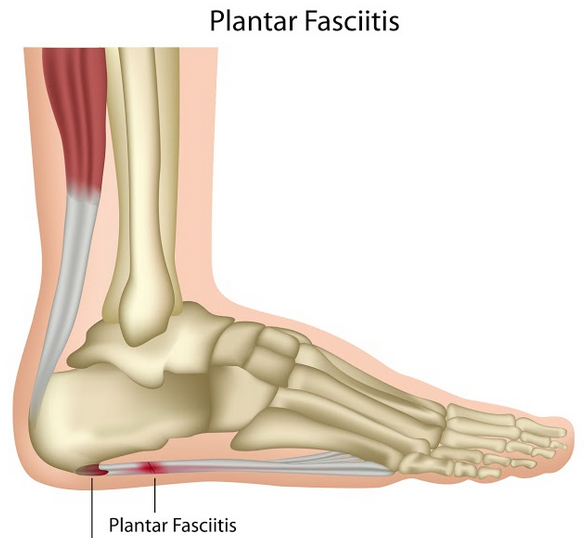or Call 770-284-1616
Plantar fasciitis is a term used to describe the inflammation of the thick band of tissue that extends from your heel towards your toes, called the plantar fascia. This thick band of tissue helps support your arch and shape of your foot. Plantar fasciitis in Atlanta is very common and most people with this experience pain in the bottom of their heel after taking the first step in the morning or after long periods of rest. This pain is caused by placing excessive stretch on the plantar fascia, leading to minor tears and inflammation.
Plantar fasciitis is common in middle-aged individuals, but is also seen in younger people who stand for long hours. Risk factors for plantar fasciitis include walking or standing on your feet for long hours, diminished fat at the bottom of your heel, improper footwear, been overweight and having a pronated foot.
Most people respond well to conservative care. It is important to see your podiatrist early to diagnose this because over time, the pain gets worse without treatment. Our podiatrists will speak with you to understand your symptoms, then, the podiatrists will do a physical exam of your foot. During this exam, the podiatrist will locate the point of tenderness on your feet, which will help determine the cause of the pain. Then, foot x- rays will be taken to evaluate your foot and rule out any other disease processes. The podiatrist will then discuss the treatment options that will treat the plantar fasciitis. Treatment options may include stretching exercises, icing, strapping, anti-inflammatories, injection to the heel, physical therapy, shoe inserts and modification of footwear. At times, further exams like an MRI may be ordered if necessary.
In a majority of cases, conservative treatments relief the pain associated with plantar fasciitis. When conservative treatments fail to relieve this pain, shockwave therapy may be applied to the affected heel and surgery may also be considered as a last resort. It is best to see a podiatrists as soon as you notice any heel pain because long standing plantar fasciitis may lead to chronic heel pain.
If you are experiencing any heel pain, please
CLICK HERE to Call:
770-284-1616
and schedule an appointment at our office. Our podiatrists will be glad to evaluate and treat your symptoms.
Book an Appointment